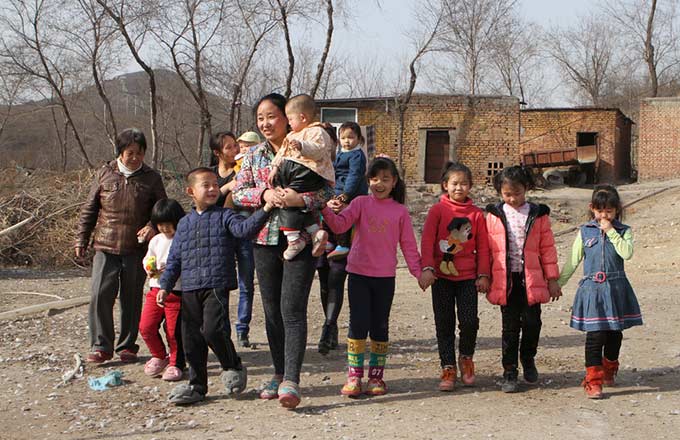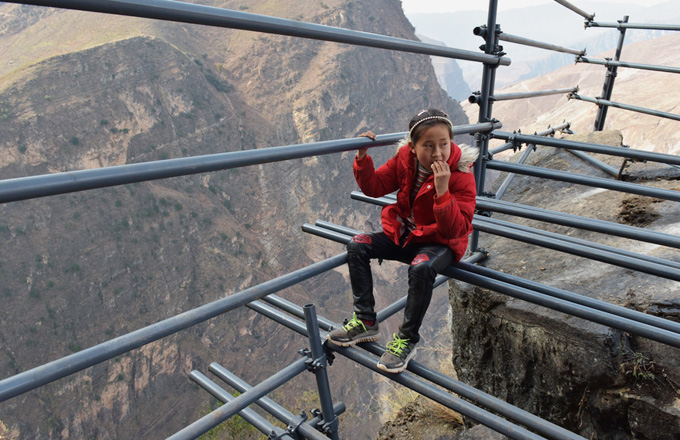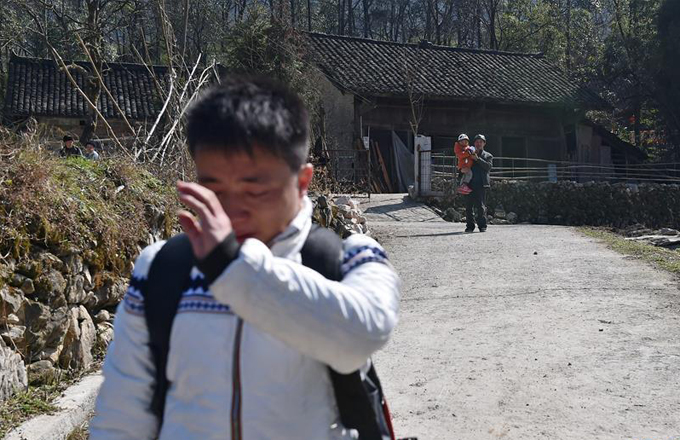China steps up prevention of human H7N9 avian flu
BEIJING -?The mother of a three-year-old girl in southwest China's Yunnan Province has become the latest victim of the H7N9 bird flu.
The 23-year-old died in hospital on Tuesday night, a week after her daughter died from the same virus. The family went to east China's Jiangxi Province for the Spring Festival holiday on Jan. 21 and had contact with live poultry there.
Similar tragedies have been reported in other parts of the country. Since January, at least 269 H7N9 human infections have been reported in China, with at least 87 fatalities. Most cases were around the Yangtze and Pearl river deltas.
The situation has prompted health authorities to step up prevention and control measures. The National Health and Family Planning Commission is training workers in screening and early diagnosis, and in treatment of critically ill patients. The commission has also ordered a ban on the live poultry trade in places where H7N9 cases have been reported.
On Thursday, Guangzhou, capital of south China's Guangdong Province, stopped live poultry trading for the rest of the month, with all poultry markets to be thoroughly disinfected.
Exposure to live poultry is the major source of infections, particularly in rural areas. All human infections in Guangdong originated in live poultry and February - March is a crucial time for epidemic control, according to the local health commission.
Zhejiang, with 35 human infections and 11 fatalities in January, is suffering the worst epidemic in three years. The virus was found in 40 percent of live poultry markets this month, compared with 10 percent in September. All rural live poultry markets there were closed from Saturday. The trade has been banned in the cities since 2014.
Live poultry sales have also been suspended in Xiamen, Suzhou and several cities in Hunan and Sichuan provinces.
The bans have greatly reduced the number of new infections in many regions, said Ni Daxin, deputy director of the emergency response center at the Center for Disease Control and Prevention. Ni suggested replacing live poultry with frozen birds to reduce the risk of infection.
The disease control and prevention center in Jiangxi has set up four emergency response teams to tackle outbreaks. Zhang Wei, vice president of Nanchang University No. 1 Hospital in Jiangxi, said the warm winter and wet weather in the south had helped the virus grow and spread.
The animal husbandry department in Jiangxi, where 28 human infections and seven deaths have been reported this year, has sent out 1,500 staff to screen 500 markets and 2,000 farms.
Wu Huanyu with the Shanghai center for disease control and prevention, said breeders and frail or vulnerable people suffering from other illnesses are the most susceptible groups and the general public should avoid contact with poultry.
On Thursday, the Beijing Food and Drug Administration announced that four vaccines have received the greenlight for clinical tests, bringing hope for better prevention and control in the future.
H7N9 was first reported in humans in China in March 2013. It is most likely to strike in winter and spring.
The 23-year-old died in hospital on Tuesday night, a week after her daughter died from the same virus. The family went to east China's Jiangxi Province for the Spring Festival holiday on Jan. 21 and had contact with live poultry there.
Similar tragedies have been reported in other parts of the country. Since January, at least 269 H7N9 human infections have been reported in China, with at least 87 fatalities. Most cases were around the Yangtze and Pearl river deltas.
The situation has prompted health authorities to step up prevention and control measures. The National Health and Family Planning Commission is training workers in screening and early diagnosis, and in treatment of critically ill patients. The commission has also ordered a ban on the live poultry trade in places where H7N9 cases have been reported.
On Thursday, Guangzhou, capital of south China's Guangdong Province, stopped live poultry trading for the rest of the month, with all poultry markets to be thoroughly disinfected.
Exposure to live poultry is the major source of infections, particularly in rural areas. All human infections in Guangdong originated in live poultry and February - March is a crucial time for epidemic control, according to the local health commission.
Zhejiang, with 35 human infections and 11 fatalities in January, is suffering the worst epidemic in three years. The virus was found in 40 percent of live poultry markets this month, compared with 10 percent in September. All rural live poultry markets there were closed from Saturday. The trade has been banned in the cities since 2014.
Live poultry sales have also been suspended in Xiamen, Suzhou and several cities in Hunan and Sichuan provinces.
The bans have greatly reduced the number of new infections in many regions, said Ni Daxin, deputy director of the emergency response center at the Center for Disease Control and Prevention. Ni suggested replacing live poultry with frozen birds to reduce the risk of infection.
The disease control and prevention center in Jiangxi has set up four emergency response teams to tackle outbreaks. Zhang Wei, vice president of Nanchang University No. 1 Hospital in Jiangxi, said the warm winter and wet weather in the south had helped the virus grow and spread.
The animal husbandry department in Jiangxi, where 28 human infections and seven deaths have been reported this year, has sent out 1,500 staff to screen 500 markets and 2,000 farms.
Wu Huanyu with the Shanghai center for disease control and prevention, said breeders and frail or vulnerable people suffering from other illnesses are the most susceptible groups and the general public should avoid contact with poultry.
On Thursday, the Beijing Food and Drug Administration announced that four vaccines have received the greenlight for clinical tests, bringing hope for better prevention and control in the future.
H7N9 was first reported in humans in China in March 2013. It is most likely to strike in winter and spring.
























